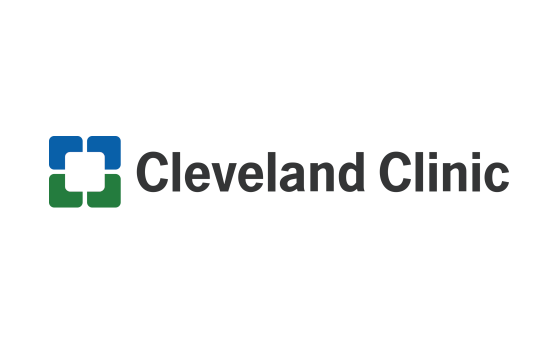 Cleveland Clinic and IBM have begun deployment of the first private sector onsite, IBM-managed quantum computer in the United States. The IBM Quantum System is to be located on Cleveland Clinic’s main campus in Cleveland.
Cleveland Clinic and IBM have begun deployment of the first private sector onsite, IBM-managed quantum computer in the United States. The IBM Quantum System is to be located on Cleveland Clinic’s main campus in Cleveland.
The first quantum computer in healthcare, anticipated to be completed in early 2023, is a key part of the two organizations'10-year partnership aimed at fundamentally advancing the pace of biomedical research through high-performance computing. Announced in 2021, the Cleveland Clinic-IBM Discovery Accelerator is a joint center that leverages Cleveland Clinic’s medical expertise with the technology expertise of IBM, including its leadership in quantum computing.
"The current pace of scientific discovery is unacceptably slow, while our research needs are growing exponentially," said Lara Jehi, M.D., Cleveland Clinic's Chief Research Information Officer. "We cannot afford to continue to spend a decade or more going from a research idea in a lab to therapies on the market. Quantum offers a future to transform this pace, particularly in drug discovery and machine learning."
"A step change in the way we solve scientific problems is on the horizon," said Ruoyi Zhou, Ph.D., Director, IBM Research - Cleveland Clinic Partnership. "At IBM, we're more motivated than ever to create with Cleveland Clinic and others lasting communities of discovery and harness the power of quantum computing, AI and hybrid cloud to usher in a new era of accelerated discovery in healthcare and life sciences."
The Discovery Accelerator at Cleveland Clinic draws upon a variety of IBM’s latest advancements in high performance computing, including:
- Generative Toolkit for Scientific Discovery and other generative modelling capabilities that leverage AI to infer knowledge gaps and generate hypotheses, and ultimately aim to speed up the research process in therapeutics and biomarkers discovery;
- RXN, a cloud-based platform that combines AI models and the ability to directly control robotic labs to enable end-to-end design and synthesis of new chemical compounds;
- Deep Search, a next-generation AI tool for generating insight from large amounts of structured and unstructured technical literature; and
- High-Performance Hybrid Cloud Computing technologies that enable researchers to "burst" their workloads into the cloud and access the resources they need at scale.
The Discovery Accelerator also serves as the technology foundation for Cleveland Clinic's Global Center for Pathogen Research & Human Health, part of the Cleveland Innovation District. The center, supported by a $500 million investment from the State of Ohio, Jobs Ohio and Cleveland Clinic, brings together a team focused on studying, preparing and protecting against emerging pathogens and virus-related diseases. Through Discovery Accelerator, researchers are leveraging advanced computational technology to expedite critical research into treatments and vaccines.
Together, the teams have already begun several collaborative projects that benefit from the new computational power. The Discovery Accelerator projects include a research study developing a quantum computing method to screen and optimize drugs targeted to specific proteins; improving a prediction model for cardiovascular risk following non-cardiac surgery; and using artificial intelligence to search genome sequencing findings and large drug-target databases to find effective, existing drugs that could help patients with Alzheimer's and other diseases.
A significant part of the collaboration is a focus on educating the workforce of the future and creating jobs to grow the economy. An innovative educational curriculum has been designed for participants from high school to professional level, offering training and certification programs in data science, machine learning and quantum computing to build the skilled workforce needed for cutting-edge computational research of the future.
About Cleveland Clinic
Cleveland Clinic is a nonprofit multispecialty academic medical center that integrates clinical and hospital care with research and education. Located in Cleveland, Ohio, it was founded in 1921 by four renowned physicians with a vision of providing outstanding patient care based upon the principles of cooperation, compassion and innovation. Cleveland Clinic has pioneered many medical breakthroughs, including coronary artery bypass surgery and the first face transplant in the United States. U.S. News & World Report consistently names Cleveland Clinic as one of the nation’s best hospitals in its annual "America's Best Hospitals" survey. Among Cleveland Clinic's 72,500 employees worldwide are more than 5,050 salaried physicians and researchers, and 17,800 registered nurses and advanced practice providers, representing 140 medical specialties and subspecialties. Cleveland Clinic is a 6,500-bed health system that includes a 173-acre main campus near downtown Cleveland, 22 hospitals, more than 220 outpatient facilities, including locations in northeast Ohio; southeast Florida; Las Vegas, Nevada; Toronto, Canada; Abu Dhabi, UAE; and London, England. In 2021, there were 10.2 million total outpatient visits, 304,000 hospital admissions and observations, and 259,000 surgical cases throughout Cleveland Clinic's health system. Patients came for treatment from every state and 185 countries.